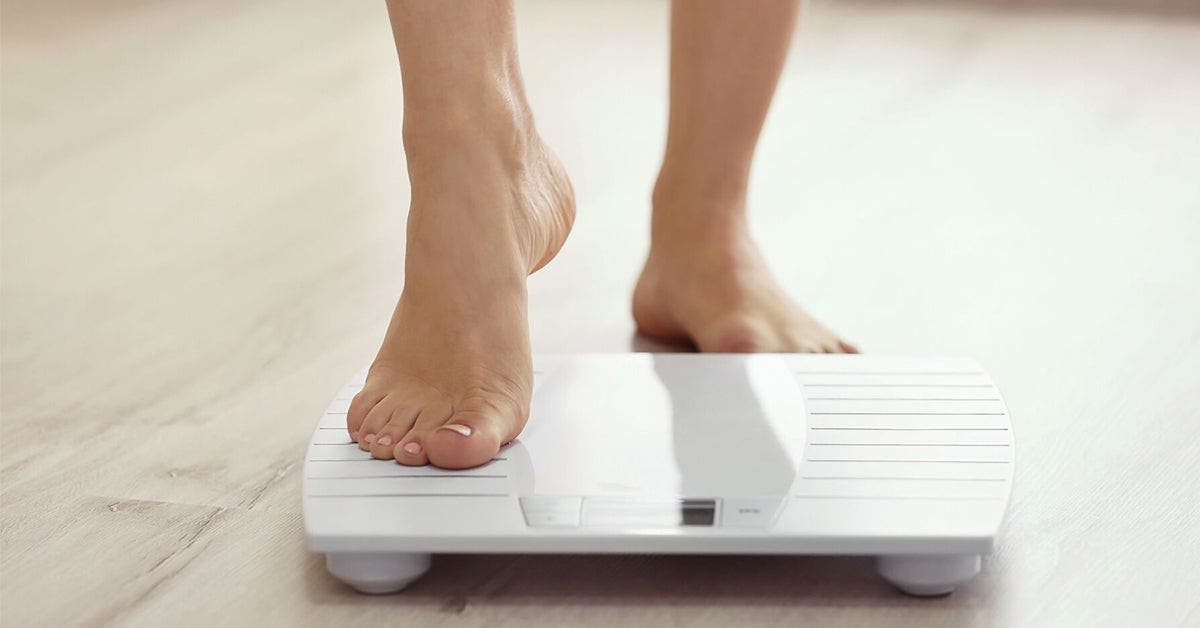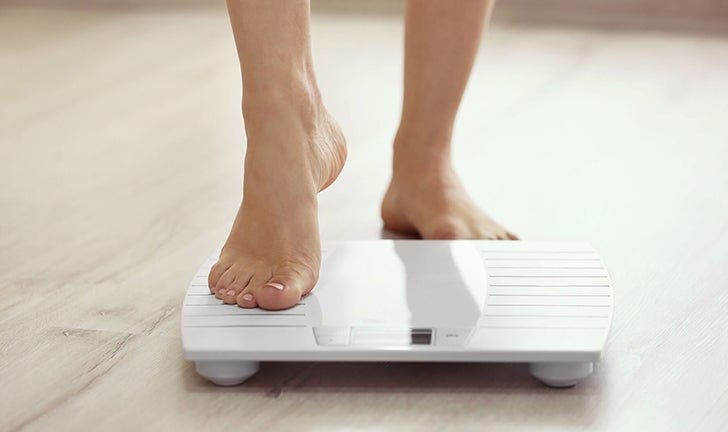The benefits of weighing yourself regularly


Wondering how often you should weigh yourself on WeightWatchers? There's no one right answer, but we generally recommend that you do so at least once a week but no more than once a day. Why? Doing so can help the pounds fall off.
"A lot of research shows individuals who weigh themselves weekly—if not more frequently, as much as daily—tend to do better in terms of initial weight loss and in terms of keeping weight off long-term,” says Gareth Dutton, PhD, a professor at the University of Alabama at Birmingham’s School of Medicine.
Case in point: a 12-month study published in 2020 in the journal Obesity. Researchers found that people who weighed themselves weekly lost 31.5% more weight than those who did not get on the scale that frequently.
Head to the WeightWatchers app
With WeightWatchers, you have multiple options for weighing in weekly (or more frequently). Workshop members can weigh in weekly with their Wellness Check-in, whether at a WW Studio or virtually in a private Zoom chat. And all members can use the WeightWatchers app to weigh in at home, on vacation, at the gym—wherever!
To track your weight on the app, use the weekly check-in. You can find it on the homepage of the app and also under the profile icon in the top right corner.
Once you track your weight, you'll be asked to reflect on your week. You'll also receive a progress report and set an action plan and goal for the upcoming week. Going through this entire flow helps set you up for weight-loss success.
Need a little nudge to step on the scale? We hear you—and we're there for you. The Mindset section of the WW app has a powerful audio coaching that walks you through the process of weighing in to help make it less intimidating. Give it a listen!
One of the main takeaways: The scale inspires emotions in all of us, but it's just a hunk of metal and plastic! Whatever the reading is—up, down, or about the same—doesn't reflect your success on your WW journey or say anything about who you are.
Create a routine
Now that you know how to track your weight, it helps to create a consistent weigh-in routine—one that allows you to get on the scale at the same time, in the same place, and in the same manner each week.
First, put your scale somewhere where you can easily see it (not kicked under the bathroom cabinet). Then choose a time of day and day(s) of the week that you'll choose to weigh yourself, say, Tuesday and Sunday mornings.
Now, choose a consistent way to weigh in. It's recommended that you do so right after you wake up, before eating anything, and without wearing clothes. This ensures that the changes you see on the scale aren't due to the chunky sweater you're wearing or the fluids you drank throughout the day.
Why you should weigh yourself
You’ll notice how behaviors impact your body
“Weighing in regularly can be helpful for adopting healthy behaviors to lose weight because it increases awareness of how the things we eat and the exercises we do impact weight,” says Dori Steinberg, PhD, RD, assistant professor of nursing and global health at Duke University and the associate director of the Duke Global Digital Health Science Center.
You’ll stay accountable
It’s much easier to get off track when you don’t have anything to tell you that you’ve actually veered from your goal. Knowing your weight can be empowering! It gives you information about what you might want to do next (change your lunchtime habits, say).
Making a date with the scale part of your weekly or daily routine also helps you notice what’s working (meal prepping your lunches so that you don't grab takeout, for example) so that you can keep doing it.
You’ll become familiar with—and relax around!—the normal ups and downs
Here's the thing: Weight fluctuates naturally, and when you're trying to lose weight, you may get thrown off by these fluctuations. For many of us, weigh-ins can be anxiety provoking, specifically because we interpret those fluctuations as meaningful—when often they aren't. Regularly getting on the scale can help you become familiar with these patterns and provide a little breathing room.
“There is so much weight given to the number on the scale—we give it so much value, but its value is that it’s just another tool in our tool box,” reminds Steinberg.
Making the scale a part of your daily habit helps alleviate the anxiety many people feel surrounding the process and removes the emotional, judgmental aspects of weighing in that people so often fear, says Dutton. “It becomes an objective data point rather than a subjective judgment call on you as a person.”
